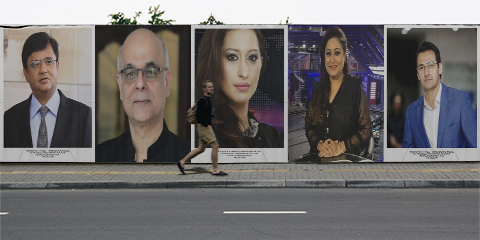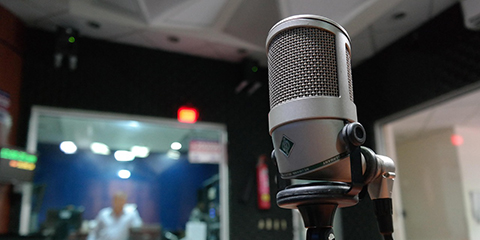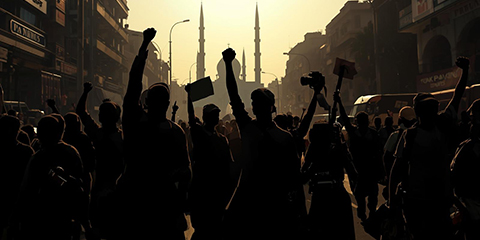Switching channels like underwear: Job-hopping fever grips top anchors
JournalismPakistan.com | Published last year | Imran Naeem Ahmad
Join our WhatsApp channel
ISLAMABAD —The Pakistani media landscape has never been a calm sea, but in recent months, it seems to have turned into a full-fledged storm of job-hopping. Some of the most prominent names in the industry have been jumping from one channel to another, and it’s not going unnoticed.
Kamran Khan, the former president of Dunya Group and anchor, quit Dunya News to join Nuqta, a digital channel. Mehr Bukhari, one of the most recognized faces in Pakistani journalism, left ARY News and found her new home at Dunya. Meanwhile, Muhammad Malick, who had been hosting at AIK News, made a bold move to ARY News. And it doesn’t stop there—Asma Chaudhry moved from Talon News to NewsOne TV, and Sammer Abbas left Hum News to join Dunya News.
What’s driving these moves? Is it purely about financial gain, with these journalists seeking higher salaries? Or is there more to this job-hopping trend—such as frustrations with censorship, lack of editorial freedom, or a desire to explore "greener pastures"?
Big Salaries, Bigger Problems
It’s no secret that top journalists in Pakistan are paid handsomely—millions. Yet, while the anchors pocket hefty paychecks, it’s often the lower staff who are left to shoulder the workload. The big names get the glory, the airtime, and the clout, but behind the scenes, it’s the junior reporters and production teams who keep the wheels turning.
And yet, despite these perks, the trend of moving between channels has become so common that it’s almost like changing one’s underwear. One day, a familiar face is fronting the evening news at ARY; the next, they’ve popped up on Dunya or Hum News.
Censorship & Chaos
At the heart of this media circus is a more serious issue: censorship. The Pakistani media is no stranger to the iron grip of censorship, whether imposed by government entities or internal pressures from media owners with political connections. Journalists often find themselves shackled by what they can and cannot report, leading many to seek new outlets where they hope to gain more freedom—only to face similar constraints elsewhere.
It’s not just censorship that’s fueling the chaos. With constant political and economic shifts, media houses have become battlegrounds for influence and power. Every move a journalist makes seems to be scrutinized, politicized, and criticized. Yet, despite these challenges, the public continues to look toward journalists for truth and accountability—an increasingly difficult task when they’re caught in the crossfire of shifting loyalties and channel hopping.
The New Norm?
So, what does this mean for the future of Pakistani journalism? If job-hopping continues at this pace, it will likely lead to an even more fractured media landscape. Stability in journalism is crucial for maintaining credibility, and frequent changes erode the trust audiences have in both the journalists and the institutions they represent.
In a world where news breaks faster than it can be reported, consistency and reliability are more critical than ever. But when journalists are constantly on the move, those qualities are hard to find. As the chaos continues, one can’t help but wonder if the Pakistani media is losing its way—becoming more about the personalities than the stories that matter.
In the end, while the faces may change, the problems remain the same: censorship, political interference, and a media system that often values profit over truth.

























